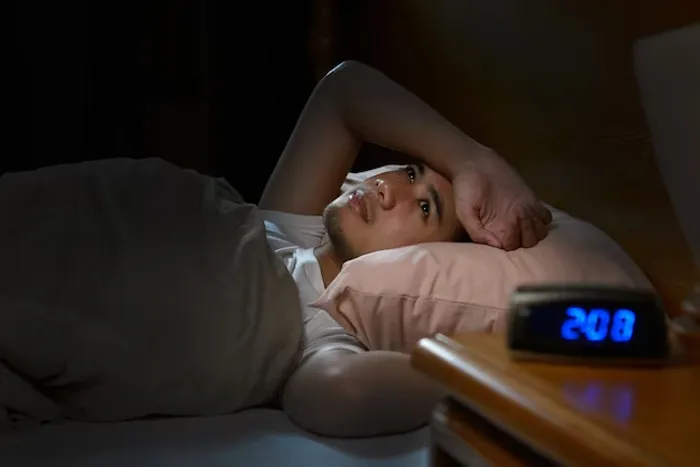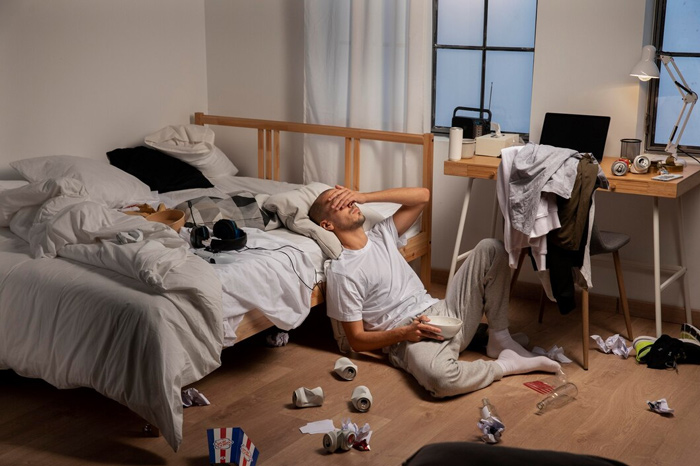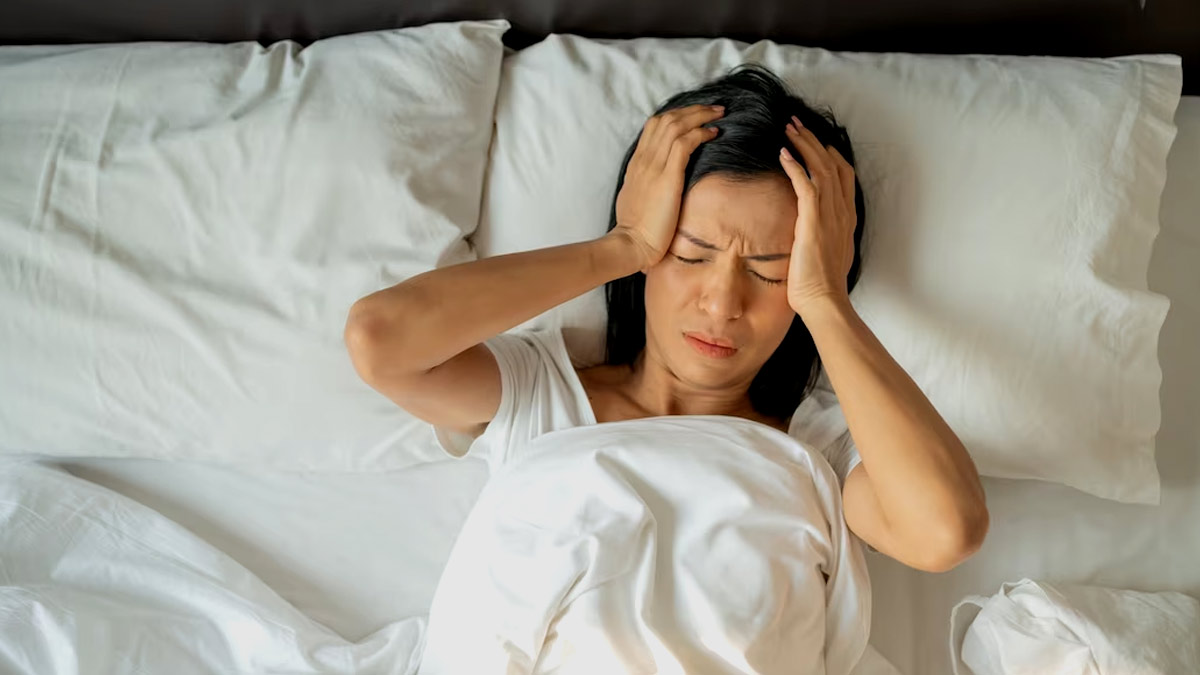
Your eyes feel heavy, your body aches with a deep exhaustion, yet sleep remains a distant dream. Even on the days when you’re bone-tired, your brain refuses to switch off. If you are nodding your head yes, it's a sure sign that something is missing in our nighttime routine. Experts warn that when you're having trouble sleeping, even when you're tired, some common, and often unconscious routines are actually working against your sleep.
Table of Content:-
We reached out to our expert, Shrey Kumar Srivastav, Senior Consultant and General Physician, Sharda Hospital - Noida, to find out why some of us struggle to sleep even when we’re tired. Read ahead to know what he shared with us.
Body's Needs vs. The Brain's Demands Before Sleep
Stating an example for better understanding, Dr Srivastav said, “Consider your body and your brain as two distinct units with different demands. Your body, after an active physical and mental day, is crying out for sleep. It's drained of energy, tense with muscles, and its systems eager for a much-needed reboot. But your brain can be different. It's readily stimulated and, if it doesn't get the proper signals, it can remain in high-alert mode, processing information, fretting about tomorrow's agenda, or replaying the day's activity.”
This is where the gap occurs. “You might be physically exhausted, but your brain is still in go-mode,” he added.
Also Read: Can Eating Disorders Affect Your Heart? Cardiologist Suggests

Here's What You're Doing Wrong
According to Dr Srivastav, to close that gap, we have to know what's keeping our brain revved and how to get it to slow down. Here’s what you might be doing wrong and how to fix it:
1. The Pre-Bedtime Screen Binge
Screen time before bed is probably the biggest problem of them all in today's world. Surfing social media, binge-watching, or even reading emails just before bed subjects your eyes to blue light. This blue light emitted by electronic displays deceives your brain into the belief it's day, inhibiting the synthesis of melatonin, the sleep-wake cycle-regulating hormone. The mental activation of the material also activates your mind, making it hard to switch off.
The Fix: Follow a digital curfew. Turn off all screens, phones, tablets, and TVs at least 60-90 minutes before bedtime. Write in a journal, read a real book, or listen to soothing music instead.
2. Afternoon Caffeine Hit
“That coffee you had that afternoon may be a lifesaver, but its aftereffects can wear on far longer than you realise,” Dr Srivastav highlighted. The half-life of caffeine is many hours, so half the amount of caffeine you ingest still exists in your system many hours later. The evening cup of coffee can disrupt your sleep.
The Fix: Cut off all caffeine intake by early afternoon. Additionally, limit alcohol consumption and avoid it entirely in the hours leading up to bedtime.

Also Read: Did You Know Doing Nothing Is Important For Your Brain? Expert Shares Why
3. Inconsistent Sleep Schedule
Are weekends for you all about sleeping in? Dr Srivastav warned that sleeping late and rising late on weekends, aka a condition called social jetlag, disturbs your body's internal clock (circadian rhythm). On Monday morning, you will notice that your body is in disarray, and you're drowsy but cannot sleep at your regular time.
The Fix: Aim for consistency. Sleep and wake up around the same time each day, even during weekends. These conditions help your body to understand that it's time to wake up and time to sleep.
4. Pre-Bedtime Stress Session
The cerebral spinning triggers the release of cortisol, which is the stress hormone, and keeps your nervous system revved up, making it difficult for you to sleep. This is because your body is exhausted, but your brain is competing in a marathon.
The Fix: Take 15-20 minutes to write down your thoughts, worries, and a list of things to do the next day around evening time. This clears your head and keeps your worries contained to a particular time.
5. Absence of a Wind-Down Routine
Your mind and body require a transition from activities done during the day to sleep. Skipping directly from an energetic activity to bed deprives your nervous system of the opportunity to wind down.
The Fix: Create a soothing bedtime routine. This might be a warm bath, guided meditation, gentle stretching, or a few pages of a calming book.
Bottomline
Battling to sleep when you are exhausted is a vicious circle, but it can be overcome. By recognising and avoiding these habits, you can make your body and brain get the cues in order to harmonise and gear up for a night of uninterrupted, restorative sleep. Take back your rest by making small, persistent adjustments to your evening routine.
Also watch this video
FAQ
Q1: Why does blue light from screens disrupt my sleep?
A1: Blue light suppresses the production of melatonin, the hormone that signals to your body that it's time to sleep. This can disrupt your circadian rhythm, making it harder to fall asleep.Q2: Is it okay to use a weighted blanket to help me sleep?
A2: Yes, for many people. Weighted blankets can create a calming, grounding sensation that reduces anxiety and promotes relaxation, making it easier to fall asleep.Q3: How much time should I allow myself to wind down in the evening?
A3: You should have a "digital curfew" at least 60-90 minutes before going to bed. This is an appropriate amount of time to begin your calming wind-down process and ready your mind and body for sleep.
How we keep this article up to date:
We work with experts and keep a close eye on the latest in health and wellness. Whenever there is a new research or helpful information, we update our articles with accurate and useful advice.
Current Version
Sep 25, 2025 17:43 IST
Modified By : Tanya SrivastavaSep 25, 2025 17:43 IST
Published By : Tanya Srivastava
